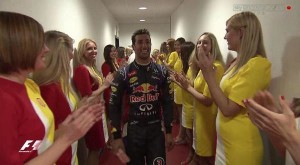
Formula One governing body, the FIA, has released details of a new Super Licence points system that will make it more difficult for drivers to become eligible for F1 racing.
From 2016 onwards, drivers must have accumulated 40 points over a three-year period in order to be eligible to apply for a super licence to compete in Formula One. Points allocation will be based on which other motorsport series’ they have competed in and the results they achieved.
The changes follow much criticism of Toro Rosso’s new 17 year old recruit, Max Verstappen. In future, drivers will have to be at least 18 years old before being allowed to compete in F1 and will also need to spend at least two years in junior single-seater categories.
Furthermore, all drivers will be required to hola valid road driver’s licence and pass a test on the Formula One sporting regulations. The existing requirement of completing 300 kilometres in a recent F1 car will also remain.
The junior categories eligible for points, in order of weighting, are: a future FIA F2 championship (60 points for winner), GP2 (50), FIA F3 European championship (40), FIA WEC (LMP1 only) (40), IndyCar (40), GP3 (30), Formula Renault 3.5 (30), Japanese Super Formula (20), national FIA-certified F4 championships (10), national F3 championships (10) and Formula Renault (EuroCup, ALPS or NEC) (5).
 These new super licence rules would have prevented ten current F1 drivers from making their grand prix debuts in the last five seasons. They include Red Bull driver Daniel Ricciardo who made his debut in 2011 and scored three race victories last year. Paul di Resta, Marcus Ericsson, Giedo van der Garde and Jean-Eric Vergne are also amongst those who would not have met the requirements to apply for a super licence.
These new super licence rules would have prevented ten current F1 drivers from making their grand prix debuts in the last five seasons. They include Red Bull driver Daniel Ricciardo who made his debut in 2011 and scored three race victories last year. Paul di Resta, Marcus Ericsson, Giedo van der Garde and Jean-Eric Vergne are also amongst those who would not have met the requirements to apply for a super licence.
The new super licence regulations also make it more difficult for drivers to make comebacks following a break from the sport. In order to automatically qualify for a superlicence drivers need to have started at least 5 F1 races in the previous year, or at least 15 in the previous 3 years. This means that Michael Schumacher, who returned to F1 after a four-year break, would not have automatically qualified for a new super licence.


